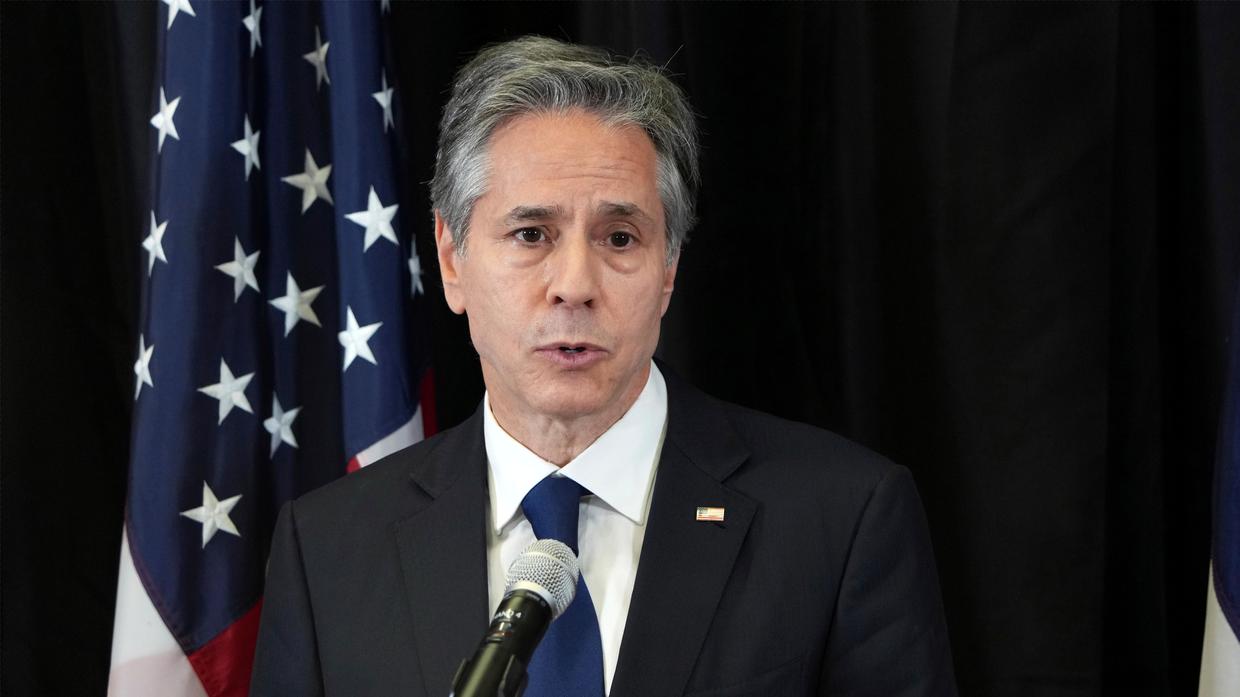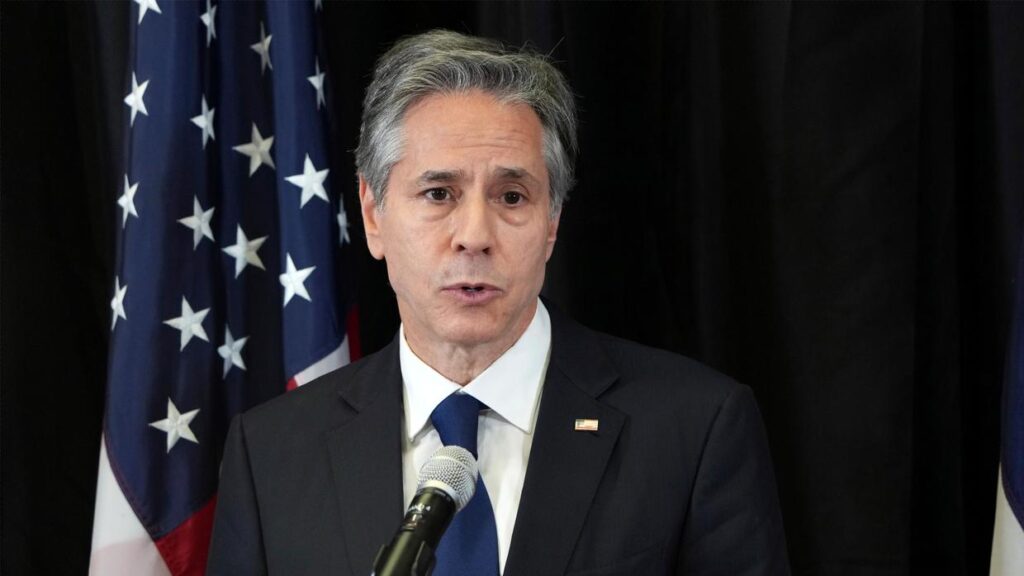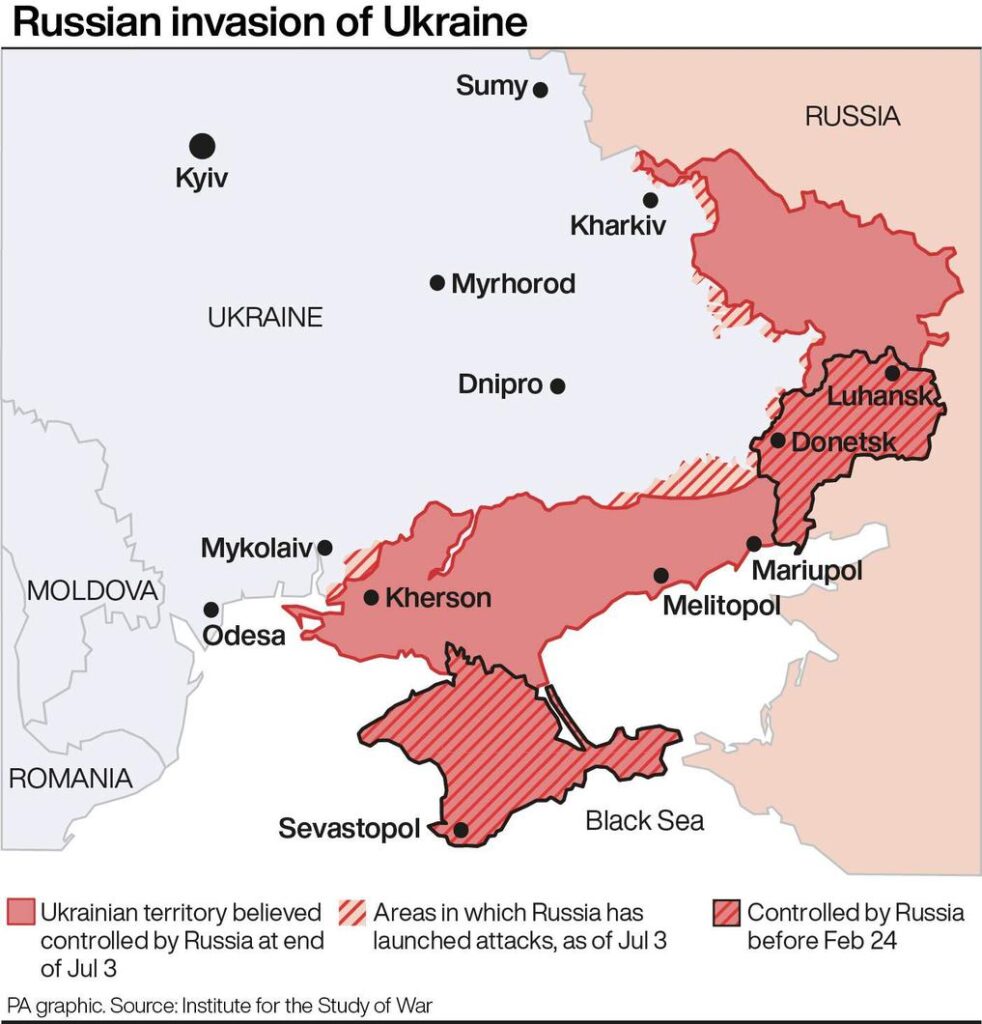
The meeting will be the first time the top US diplomat and Russia’s foreign minister have been in the same room since January.

Foreign ministers from the world’s largest nations are looking to address the war in Ukraine and its impact on global energy and food security when they meet in Indonesia this week.
However, instead of providing unity, the talks may well exacerbate existing divides over the Ukraine conflict.
US secretary of state Antony Blinken, Russian foreign minister Sergei Lavrov and Chinese foreign minister Wang Yi are set to attend the Group of 20 meeting in the Indonesian resort of Bali, which will set the stage for a summit of G20 leaders at the same venue in November.
It will mark the first time Mr Blinken and Mr Lavrov have been in the same room, let alone the same city, since January.
There is no indication the two will meet separately, but even without a one-on-one with Mr Lavrov, Mr Blinken could find himself having some difficult discussions.
The US state department announced on Tuesday that Mr Blinken will hold separate talks with Mr Wang at a time when already extremely tense US-China relations have been worsened by Beijing’s friendly ties with Moscow.
And, unlike in recent leader-level meetings with Nato partners, Mr Blinken will find himself among diplomats from countries wary of the US approach to Ukraine and concerned about its impact on them.
US officials say that aside from Mr Wang, Mr Blinken will have bilateral talks in Bali with counterparts from countries that have not seen eye to eye with the West on the Russian invasion, notably India, which has increased purchases of Russian oil even as the US and Europe have tried to choke off that revenue stream for Moscow.
In announcing that Mr Blinken would meet with Mr Wang in Bali, the US state department had little to say about the possibility of him seeing Mr Lavrov, whom the US has shunned since the Ukraine invasion began in February.
The department said there would not be a formal meeting between Mr Blinken and Mr Lavrov, whom US officials accuse of a lack of seriousness before, during and after the invasion of Ukraine.
“We would like to see the Russians be serious about diplomacy,” US spokesman Ned Price said. “We have not seen that yet. We would like to have the Russians give us a reason to meet on a bilateral basis with them, with foreign minister Lavrov, but the only thing we have seen emanate from Moscow is more brutality and aggression against the people and country of Ukraine.”
The Biden administration maintains there can be no “business as usual” with Moscow as long as the war continues.
But neither Mr Price nor other US officials could rule out the possibility of a chance Blinken-Lavrov encounter in Bali, which would be their first since they last met in Geneva in January. Mr Price declined to discuss what he called the “choreography” of the G20.
Like almost all recent international diplomatic gatherings, the Bali meeting will be overshadowed by Ukraine. But unlike the Western-dominated G7 and Nato summits held in Europe last week, the G20 will have a different flavour.
China and many other participants, including India, South Africa and Brazil, have resisted signing onto US and European full-throated opposition to Russia’s invasion.

Some have outright refused Western entreaties to join condemnations of the conflict, which the US and its allies see as an attack on the international rules-based order that has prevailed since the end of the Second World War.
Thus, there may be difficulty in achieving a G20 consensus on efforts to mitigate the food and energy impacts of the Ukraine conflict, particularly with China and Russia in the room. That will not stop the US from trying, according to American officials.
They want to see the G20 put its weight behind a U.N.-backed initiative to free up some 20 million tonnes of Ukrainian grain for export mainly to the Middle East, Africa and Asia.
“We would like the G20 to hold Russia accountable and insist that it support this initiative,” said Ramin Toloui, the assistant secretary of state for economic and business affairs.
While a variety of nations, including G20 host Indonesia, are pushing for Russia to ease its blockade in the Black Sea to allow grain to enter the global market, they remain wary of antagonising Moscow and its friends in Beijing.
And that divergence has set the stage for a potentially contentious preparatory meeting ahead of November’s G20 summit amid questions about whether Russian President Vladimir Putin will attend.
In the meantime, the US and China are separately at severe odds over numerous issues ranging from trade and human rights to Taiwan and disputes in the South China Sea.
Mr Blinken’s meeting with Mr Wang was announced after China’s trade envoy with Washington expressed concern about US tariffs on Chinese imports in a call with with US treasury secretary Janet Yellen.
Neither side gave any indication that progress has been made on the matter and US officials downplayed the chances for any breakthroughs in the short term.
